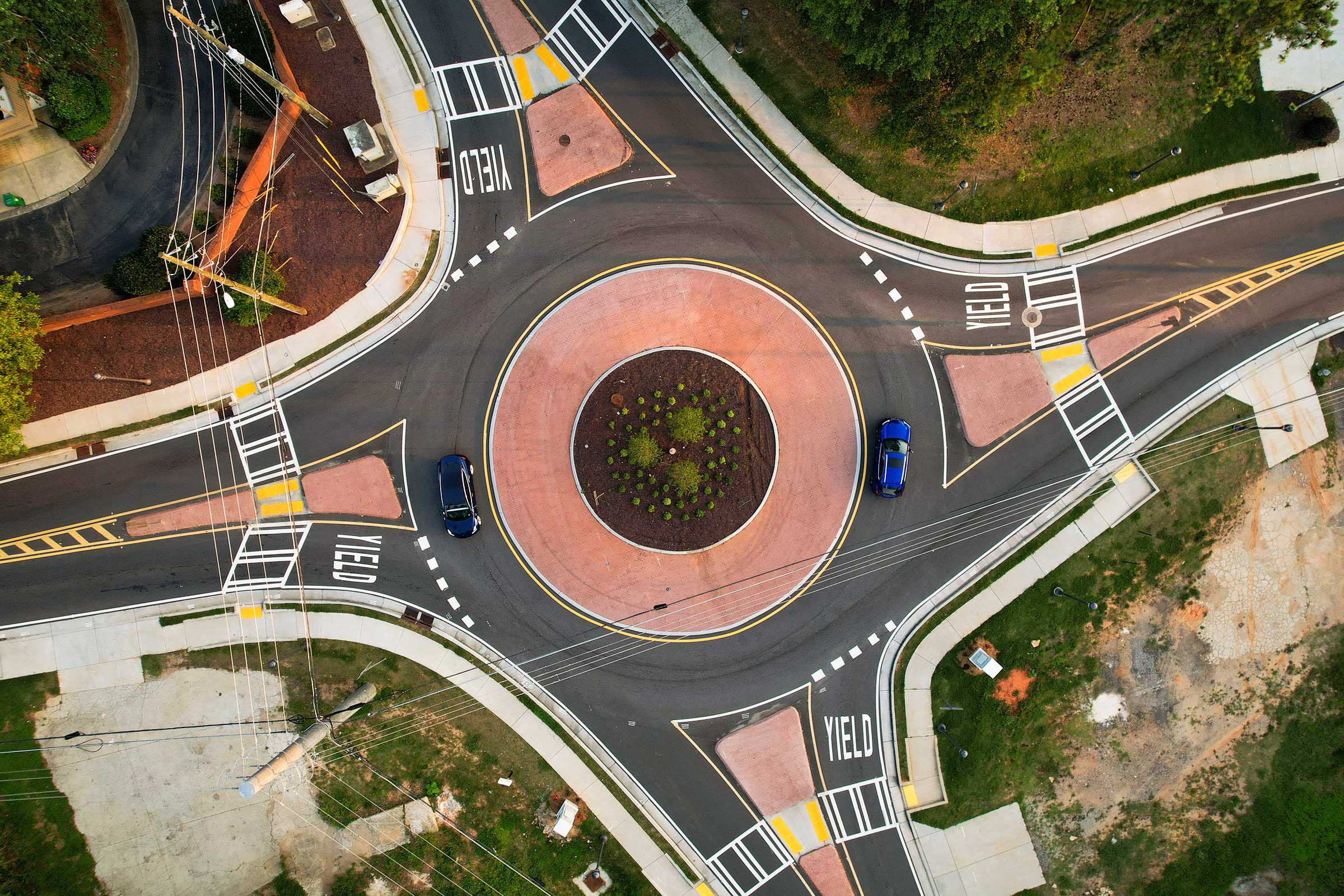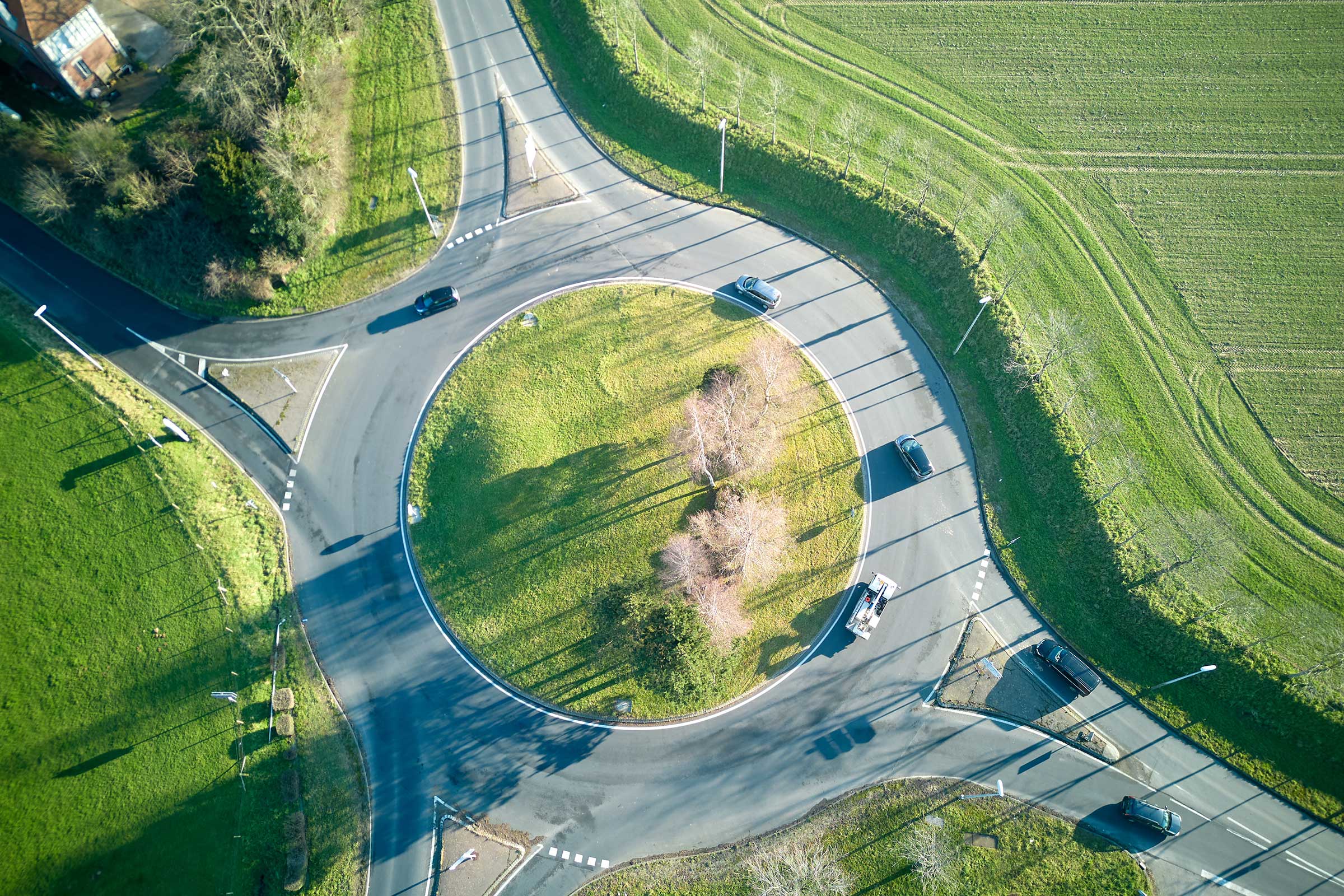
Near my home in Wicker Park, on Chicago’s north-west side, is an intersection known by some in the neighborhood semi-affectionately as “the crotch.” In Chicago’s almost perfect grid, it is where North Avenue, Milwaukee Avenue and Damen Avenue all meet in one point, creating a six-way road intersection. Its nickname fits it, because this is the part of Wicker Park you want to look away from. Nobody likes the intersection. When you cross North Avenue on foot, you have to watch out, because when the walk signal turns white is exactly when drivers try to illegally turn left and run you over. If you are on a bike, as I usually am when I cross it, it is even scarier, as you pick your way between parked cars and stressed drivers. But it also sucks to drive through. Traffic is almost permanently backed up, and at busy times, it can take 10 minutes to get through the lights.
More from TIME
There have been 690 crashes at the Crotch over the past six years. At least 19 pedestrians and cyclists have suffered incapacitating injuries. And yet, there is, a simple way to make the intersection safer. It should be turned into a roundabout (also known as a traffic circle or rotary). Based on my crude highway engineering (staring at Google maps), it probably could not be a true roundabout (one where cars are free to enter at all times, giving priority to those already on the roundabout). I suspect traffic lights would still be needed for the pedestrian crossings to work. But if you put an island in the middle, instead of a giant expanse of empty asphalt, it would force drivers slow down as they travel through it. The illegal left turn would be impossible to make, because the spot drivers wait in blocking traffic would be occupied by the island. It would be far less dangerous.
Actually roundabouts should be installed almost everywhere in America. Why? Because they save lives. The problem is that drivers keep killing people. Last year, almost 43,000 people were killed in car crashes in the U.S., according to the National Highway Traffic Safety Administration (NHTSA). That is almost as many as are killed by guns, in total, including all murders and suicides. A growing share of those deaths are pedestrians. In 2021, 7,600 people were killed while walking (the highest number in 40 years). More Americans are killed just walking each year than died in the whole of the Iraq and Afghanistan wars put together. The average American has a 1 in 93 chance of dying in a car crash in their lifetime, and generally it is young people who die in car crashes.
Thirty years ago, driving in America was not, by international standards, that dangerous. In fact, per mile driven, the French were actually slightly more likely to die in a fiery wreck. Now, Americans are three times more likely to die than the French. As I explain in my book, Carmageddon, the reason why is not that the French became better drivers. It is that France, unlike America, but like almost every other rich country on earth, has worked out how to make its roads safer. They have reduced the speed limits on minor roads, and installed thousands of speed cameras to ensure people stick to them. But they have also literally rebuilt the roads to make it harder to crash. And one of the ways they have done so is by installing roundabouts. Since the 1990s, France has gone from having just a few hundred roundabouts to more than 30,000.

Roundabouts work because they force drivers to slow down. Roughly speaking, for every 10 mph extra that a car is traveling, your chance of dying if it hits you doubles. A pedestrian hit at 35 mph is about five times as likely to be killed as somebody hit at 20 mph. At an intersection controlled by traffic lights, when the lights turn green, everybody accelerates as fast as they can. Accelerating like mad is exactly what you should not be doing at an intersection. Over a quarter of all traffic deaths in America happen at intersections, and over half of all crashes that result in an injury. But getting stuck at a traffic light that has just turned red is annoying, and accelerating is just a matter of pushing the gas, so people do it anyway. They would not if they had to turn to avoid a great big traffic island. It focuses the brain.
I admit, it will not be easy to persuade Americans of the magic of roundabouts. They come with a bad reputation. In the episode of The Simpsons where the family visits London, Homer gets stuck on one for days, before eventually swerving off and crashing into Buckingham Palace. Real life efforts have not always gone well. A couple of years ago a video from Rowan, a town in Kentucky which replaced an intersection with a roundabout, went viral. Drivers, apparently absolutely baffled by the idea that you have to go around the traffic island, instead drove en mass onto the wrong side of the road.
But it can be done. About 200 miles south of Chicago, there is a suburb of Indianapolis, Carmel, which has installed almost 150 roundabouts. The city sells jokey t-shirts promoting them. Carmel’s overall car crash death rate is just one fifth of that of the United States as a whole. And that is not the only benefit. Roundabouts also reduce congestion. This may be counterintuitive, but it precisely because they slow cars down. The slower cars are going, the less stopping distance they need between each one, and so the more can pass through an intersection in a given amount of time. Because cars do not need to stop and start so often, and go slower, they also produce fewer emissions.
Obviously roundabouts are not enough to prevent all crash deaths, or to fix congestion, or pollution, or all of the other problems cars cause. For that, we need more radical restrictions on what cars can do. But roundabouts are the easiest place to start–perhaps the simplest, quickest way to make a difference. Until Americans get used to them, on the issue of traffic safety, the country will be going around in circles.
More Must-Reads from TIME
- Cybersecurity Experts Are Sounding the Alarm on DOGE
- Meet the 2025 Women of the Year
- The Harsh Truth About Disability Inclusion
- Why Do More Young Adults Have Cancer?
- Colman Domingo Leads With Radical Love
- How to Get Better at Doing Things Alone
- Michelle Zauner Stares Down the Darkness
Contact us at letters@time.com